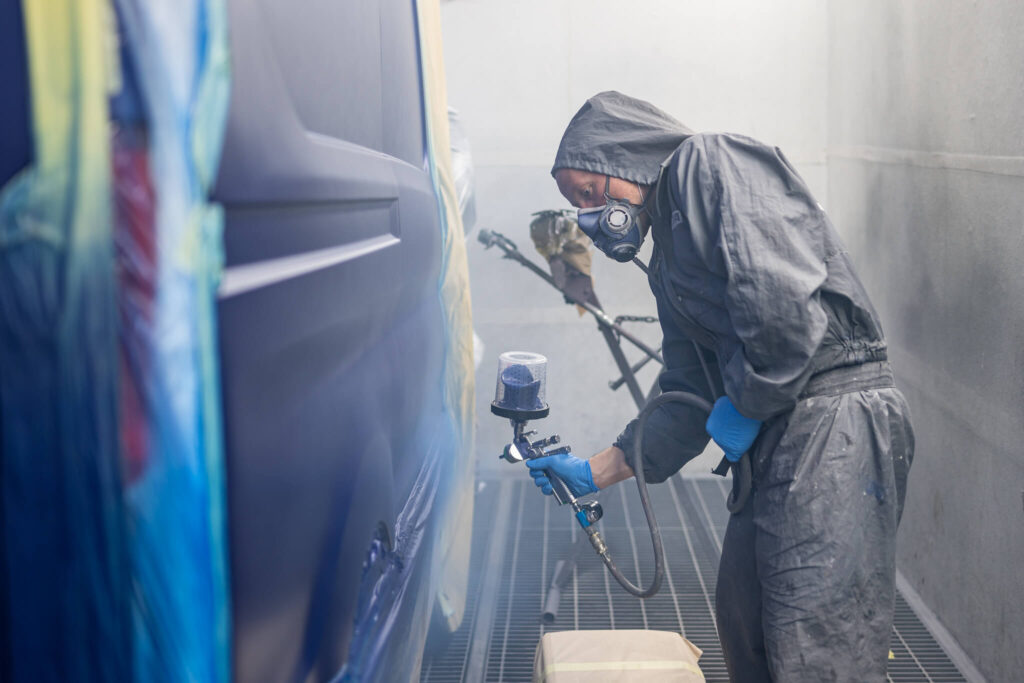Damaging your vehicle through accident or otherwise is highly stressful and can end up costing you a lot of money. The insurance process is often tricky, and if you don’t do things right, you might end up further out of pocket than you need to.
This blog will answer all your questions surrounding car repairs, insurance, and how it varies based on whether or not the damage was your fault.
Does car insurance cover repair costs?
Yes, car insurance can cover repair costs, but it will depend on the type of insurance you have (and it might also depend on whether the accident was your fault). Fully comprehensive insurance should cover your vehicle for repairs after an accident, even if it was your fault. However, it might not cover repairs which are caused by general wear and tear, such as a worn out clutch.
Third party insurance on the other hand, will only cover damage to another person’s vehicle/property – or compensation costs for injury to somebody else – if the accident was your fault. It won’t, however, cover the costs of your own vehicle repair, or cover repairs as a result of damage caused by collisions, fire or theft.
Where do you get vehicle repairs on your insurance?
Assuming your insurance recovers the costs of the damage to your vehicle, your provider is likely to offer you a number of garages or body shops which will suit your repair needs.
However, more often than not, they’ll suggest some of the cheaper shops they can find, at the expense of quality and care in the repair process. You actually have the right to seek your own repair shop though.
Using an insurance approved repair shop, such as ST Accident Repair, means you’ll get the gold standard of vehicle repairs, and still be covered (at least partially) by your insurance.
Types of vehicle repairs insurance may cover
Following a car accident, there are a number of different repair jobs you might end up needing. These could range from body and structural repairs, to mechanical repairs:
-
- Body and paintwork repairs – This could be either repairing, or replacing entirely, vehicle panels such as doors and bumpers. It could also include re-straightening vehicle frames, and fixing scratched and damaged paintwork.
-
- Mechanical repairs – Fixing damage to the car’s mechanical systems, such as suspension, balancing, transmission and exhaust systems. This might also mean fixing your wheel’s alignment.
-
- Cosmetic repairs – Buffing out dents and scratches, as well as putting the final touches on paintwork. Repair might also include fixing interior elements of your vehicle, such as interior trims and moldings.
-
- Electrical and lighting – Including headlight and tail replacement, wiring diagnostics and battery replacements. Electrical components regularly become damaged, even in more minor incidents.

What happens with your insurance if an accident was your fault?
If the accident was your fault, repair costs will be based on the type of car insurance you have.
-
- If you have fully comprehensive insurance, then it’s likely that your insurer will cover your repair costs, as well as other costs such as compensation.
-
- If you only have third party insurance, your car insurance might not cover as much of the cost.
Either way, we provide our valued customers with insurance approved estimates, so you understand the costs involved in your repairs, and how your insurance plan impacts on this.
The aim of insurance-approved estimates is to ensure that you are not surprised with any unexpected costs. This gives you the peace of mind, upfront, of knowing where your money might be going, and knowing that your vehicle is in the hands of people who really care, even if the accident was your fault.
Do I have to let my insurance company repair my car?
No, you don’t have to let your insurance company repair your car. Many people believe that doing so is their only legal option, but that is a misconception we’re here to correct.
Approved repairers, such as ST Accident Repair, can work with any insurance provider to deal with and manage the insurance process on your behalf, whilst providing you with repair jobs which go above and beyond the industry standard.
Insurance companies often try to steer you towards certain repairers, which might mean lower costs for them. It is important that you understand fully your right to choose what happens with your vehicle. We would recommend ensuring that you are fully up to date with your legal rights around car insurance and repair, so that in the worst case scenario of vehicle damage, you can protect your best interests.


